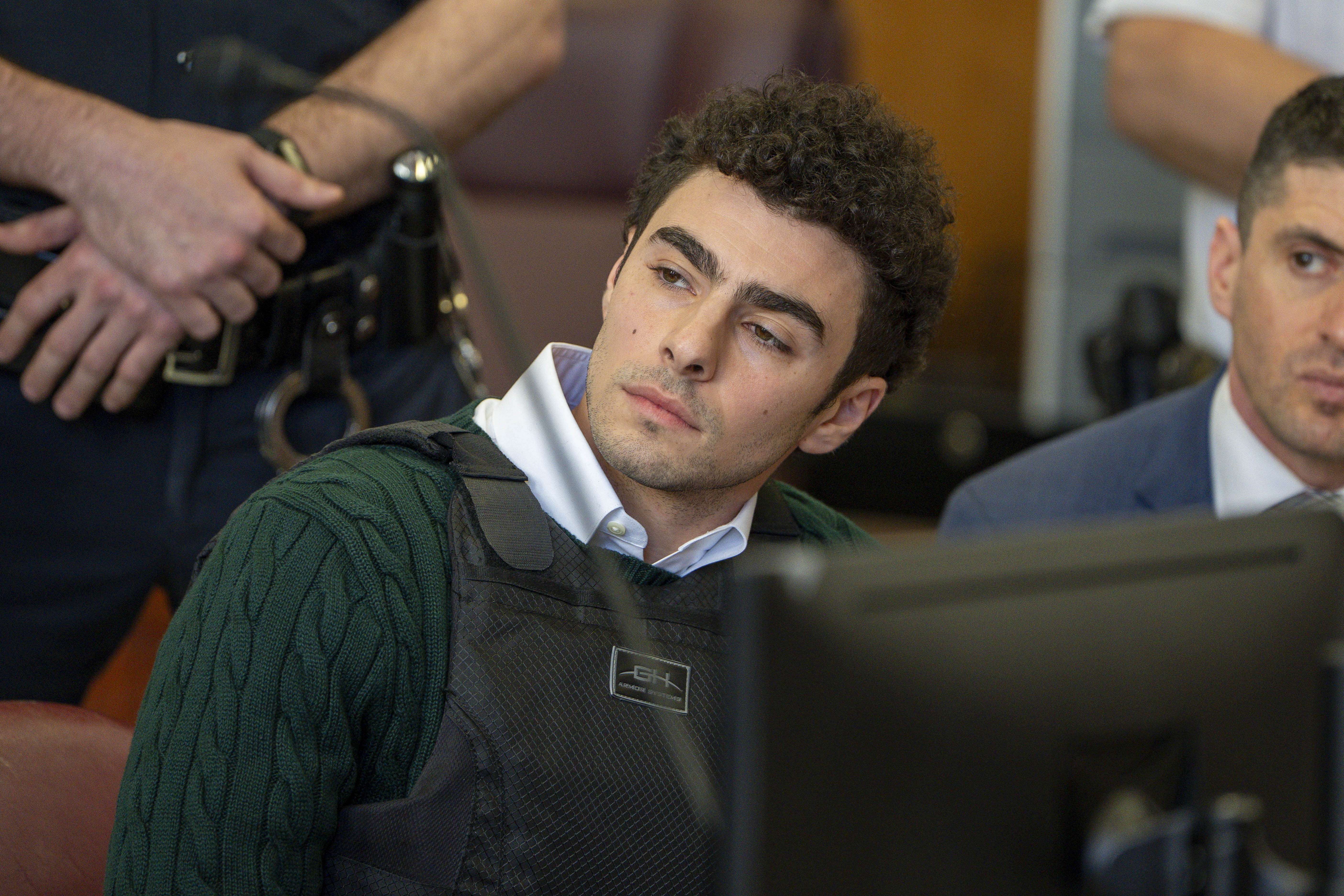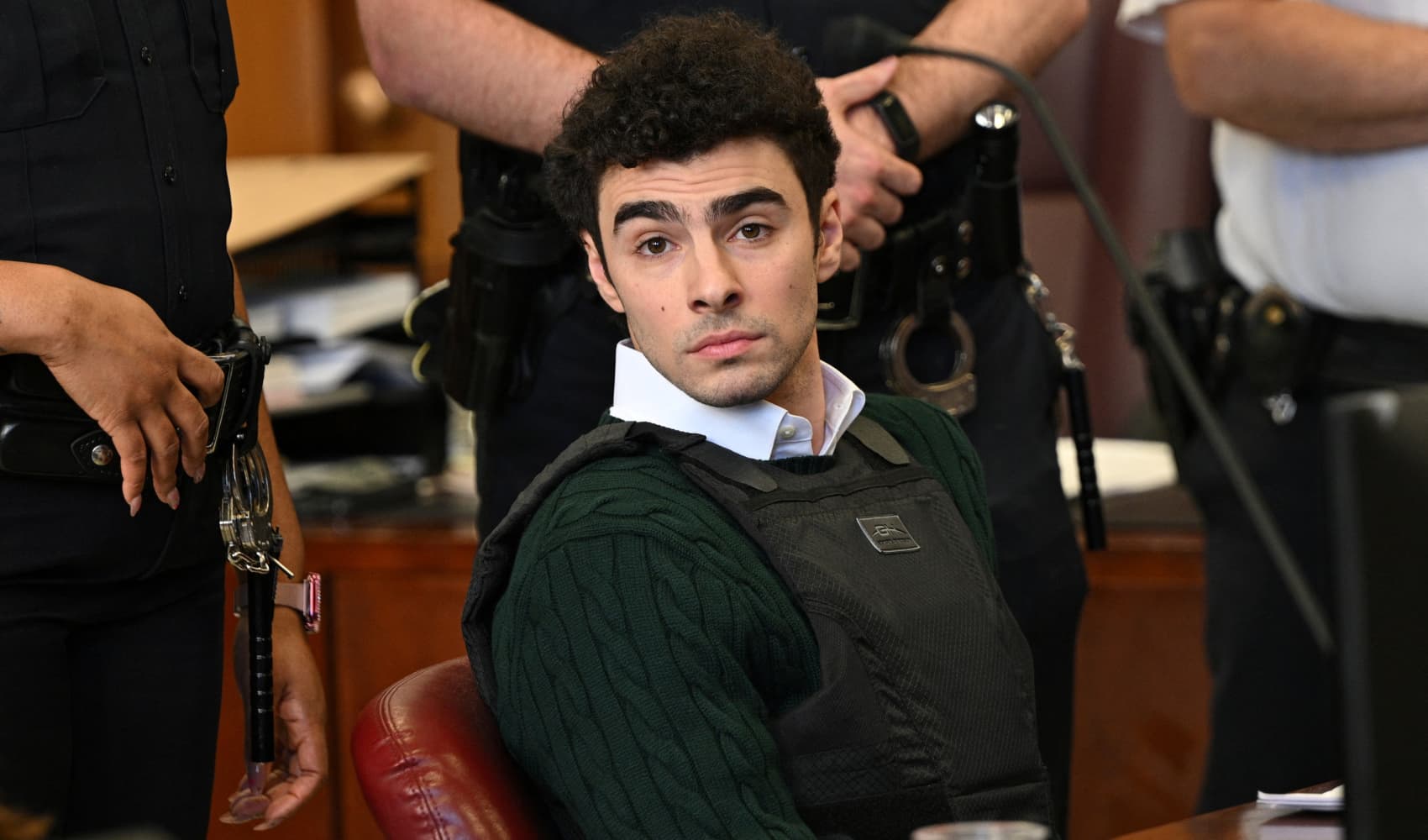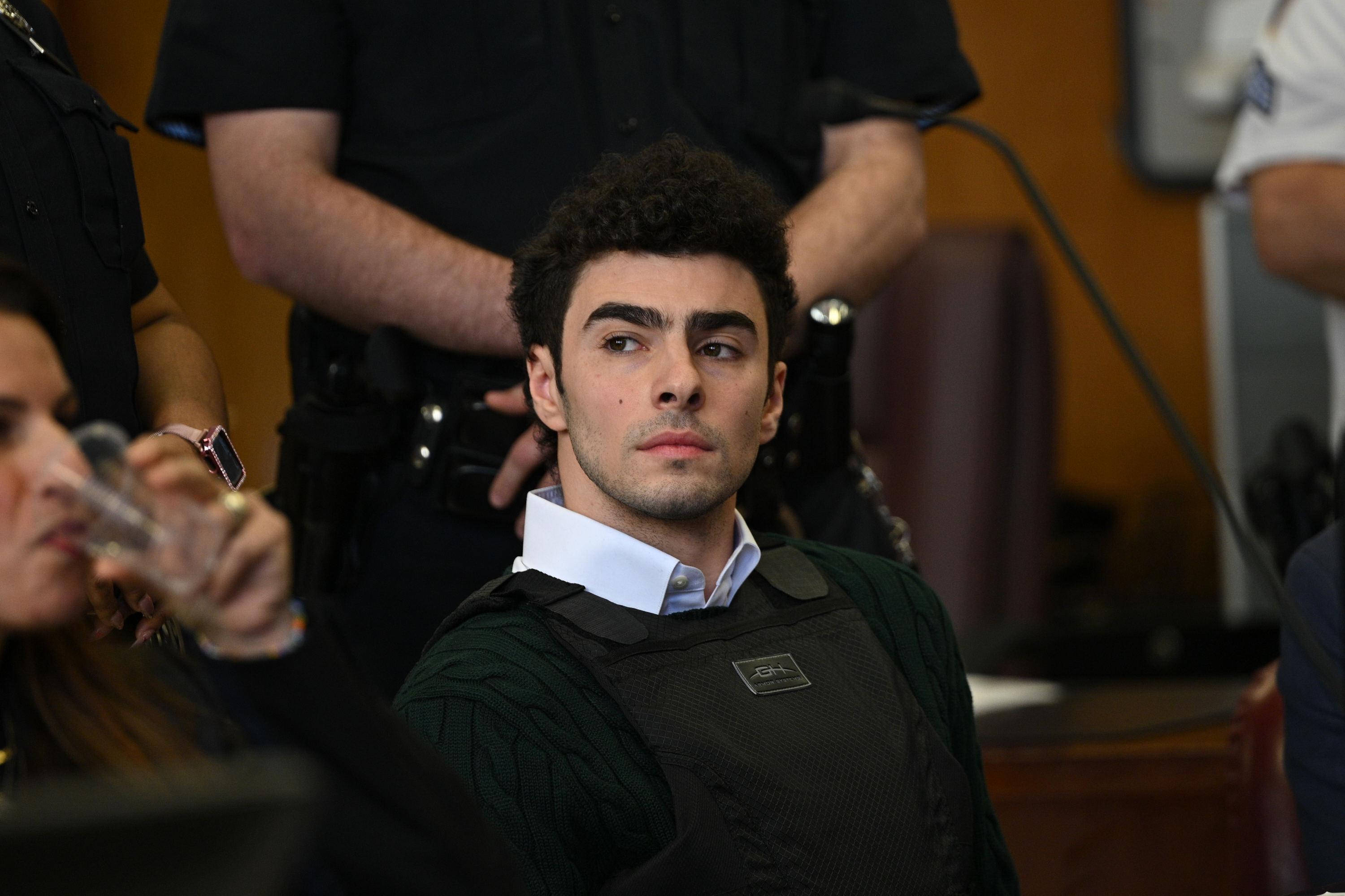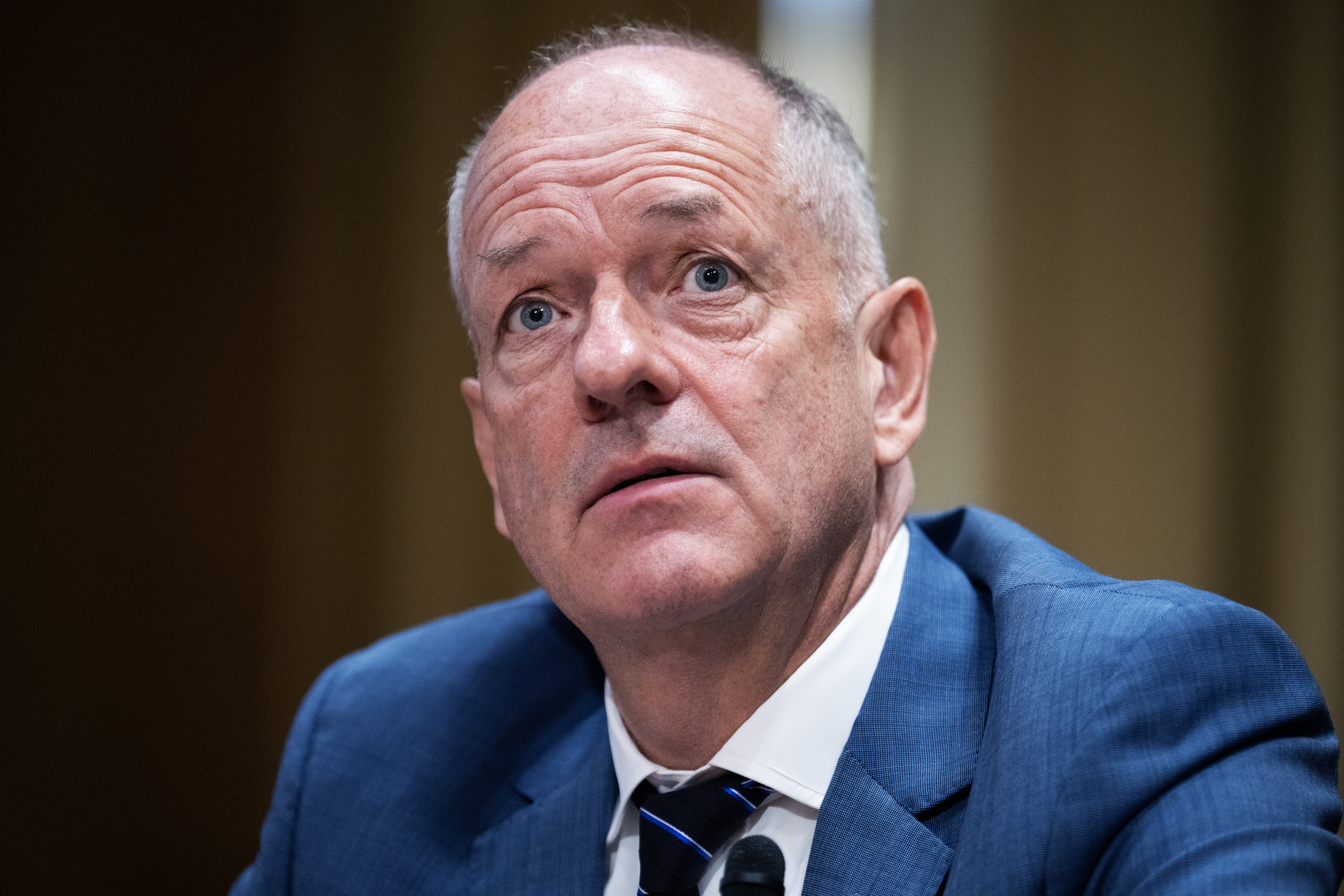Luigi Mangione Faces Death Penalty in CEO Murder Case
Luigi Mangione: Death Penalty Looms in CEO Murder Case
Introduction: The Shadow of Justice
Next week marks a pivotal moment in the case of Luigi Mangione, accused of the unthinkable – the murder of UnitedHealthcare CEO Brian Thompson. But this isn't just any murder case. The federal charges against Mangione, including murder and stalking, have opened the door to a potential death penalty sentence. Can you imagine the weight of that hanging over you? It's a scenario ripped straight from a legal thriller, and it's about to play out in a Manhattan courtroom.
Arraignment Date Set: The Clock is Ticking
Mark your calendars. Luigi Mangione's arraignment is scheduled for 1 p.m. ET next Friday. This isn't just a procedural step; it's a formal reading of the charges, where Mangione will enter his plea. This arraignment signifies the beginning of what is sure to be a long and complicated legal battle.
The Federal Grand Jury Indictment: Four Counts Against Mangione
A federal grand jury in Manhattan has returned a four-count indictment against Mangione. These aren't minor infractions; they are serious charges that paint a grim picture of the alleged crime.
Murder Through Use of a Firearm: A Capital Offense
The most serious charge, murder through the use of a firearm, carries the chilling possibility of the death penalty. Think about it: The prosecution is arguing that Mangione not only committed murder but did so in a manner that warrants the ultimate punishment. This single charge dramatically raises the stakes of the entire case.
Stalking and Gun Offenses: Adding to the Gravity
The indictment also includes charges of stalking and gun offenses. While these charges might seem secondary to the murder charge, they paint a fuller picture of Mangione's alleged actions leading up to the CEO's death. These charges can demonstrate intent and pre-planning, crucial elements in proving the murder charge.
The Death Penalty: A Political Move?
Mangione’s legal team isn’t taking this lying down. They are already arguing that U.S. Attorney General Pam Bondi’s decision to seek the death penalty is nothing more than a "political stunt" aimed at swaying the grand jury and denying Mangione his constitutional right to due process. Is this justice being served, or is it political theater?
Due Process Under Fire: Mangione's Defense
The defense team claims that Bondi's announcement corrupted the grand jury process, effectively tainting the waters before the trial even begins. This raises serious questions about the fairness of the proceedings and whether Mangione can truly receive a fair trial.
The Defense Strategy: Attacking the Prosecution
Expect Mangione’s lawyers to aggressively challenge the prosecution's evidence and arguments. They will likely focus on discrediting witnesses, questioning the validity of the evidence, and highlighting any inconsistencies in the prosecution's case. The defense will likely present a narrative that casts doubt on Mangione's guilt.
The Prosecution's Case: Building a Convincing Narrative
The prosecution, on the other hand, will be working to build an airtight case against Mangione. They will present evidence linking him to the crime, demonstrate motive, and convince the jury beyond a reasonable doubt that he is guilty. Their goal will be to paint a clear picture of Mangione as the perpetrator.
UnitedHealthcare CEO Brian Thompson: The Victim Remembered
Amidst the legal complexities, it's crucial not to forget the victim: Brian Thompson, the UnitedHealthcare CEO. His death has left a void in the company and the community. This case is not just about Mangione; it's about seeking justice for Thompson and his loved ones. The loss of a CEO, like the loss of any life, is a tragedy. It’s a stark reminder of the fragility of life and the devastating impact of violence.
The Media Frenzy: A Case in the Public Eye
This case has already attracted significant media attention, and the arraignment is sure to intensify the spotlight. Every detail, every development will be scrutinized and analyzed by the public and the press. Can you imagine the pressure on both the prosecution and the defense?
The Legal Landscape: Understanding Federal Charges
Understanding the nature of federal charges is crucial. Federal crimes are offenses against the laws of the United States, as opposed to state or local laws. This means the case is being prosecuted by the federal government, which has considerable resources at its disposal. A conviction in federal court can lead to significant penalties, including lengthy prison sentences and, in this case, potentially the death penalty.
The Role of the Jury: The Deciders of Fate
Ultimately, the fate of Luigi Mangione rests in the hands of the jury. These individuals will be tasked with weighing the evidence, listening to the arguments, and making a decision that will have profound consequences for both Mangione and the Thompson family. The jury will have to overcome their personal biases, evaluate complex legal concepts, and make a decision that reflects justice.
The Impact on UnitedHealthcare: Moving Forward
Brian Thompson’s death has undoubtedly had a significant impact on UnitedHealthcare. The company has had to navigate the loss of its leader while maintaining its operations and reassuring its stakeholders. The outcome of this case will likely have long-term repercussions for the company and its employees.
The Future of the Case: What to Expect
The arraignment is just the first step in a long legal journey. Expect months, if not years, of legal wrangling, pre-trial motions, and potentially a lengthy trial. The case is likely to be complex and emotionally charged, with both sides fiercely fighting for their respective outcomes.
Conclusion: A Case That Captivates and Concerns
The Luigi Mangione case is more than just a murder trial. It’s a story of power, loss, and the pursuit of justice. The arraignment next week marks the beginning of a critical phase in this high-profile case, one that will be closely watched by the media, the legal community, and the public at large. The stakes are incredibly high, and the outcome remains uncertain. The possibility of the death penalty adds a somber and weighty dimension to the proceedings, making it a case that captivates and concerns us all.
Frequently Asked Questions
- What is an arraignment? An arraignment is a formal court hearing where a defendant is informed of the charges against them and asked to enter a plea (guilty, not guilty, or no contest).
- What does it mean to be indicted by a grand jury? An indictment by a grand jury means that the grand jury has found sufficient evidence to believe that the defendant committed the crime they are accused of. It doesn't mean they are guilty, only that there is enough evidence to proceed to trial.
- Why is the U.S. Attorney General involved in this case? The U.S. Attorney General is the head of the Department of Justice and is involved in high-profile federal cases, especially those where the death penalty is being considered. They provide oversight and guidance to ensure that cases are handled appropriately.
- What is the significance of the "murder through use of a firearm" charge? This charge is significant because it carries a mandatory minimum sentence and makes the defendant eligible for the death penalty under federal law. It highlights the seriousness of the alleged crime.
- What are some possible outcomes of this case? Possible outcomes include a guilty verdict, a not guilty verdict, a plea bargain, or a dismissal of charges. If Mangione is found guilty, he could face life in prison or the death penalty.



